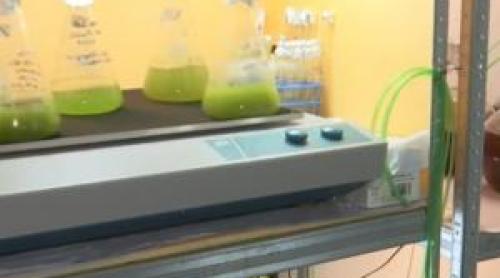
It is high time for Romania to take note at the type of agriculture it relies on, and the kind of food industry that it processes the produce of the land.
It is summer time and the inflation is not giving signs of slowing down. Prices are going up, particularly for food items. During a plentiful year, as 2008 is, and in spite of the current floods, food prices should go down. However, they do not, as the economy keeps taking in the shocks in the international markets.
Romania's inflation is fed from three sources: one is the yet unmodernized part of the economy; a second is the government controlled prices and a third is the emotionally triggered inflation.
The last one is the most perverse one, as it is fueled by anticipations based strictly on rumor mongering.
However, no one is taking issue with the fact that Romania is long overdue in the reform of its agriculture and food industry.
It is not the push and pull from Brussels that should put us on the road to modernization, but the need for Romanian society to compete internationally while lining up at the starting blocks a health population.
It is high time for Romania to take note at the type of agriculture it relies on, and the kind of food industry that it processes the produce of the land.
There is no way our country would stay in the race unless it starts to provide healthy food for domestic consumption. The husbandry sector in particular is need of a radical modernization if it is to not witness the dying out of the tradition to raise poultry and pigs and cattle inside small farms.
The small farms should play a major part in providing the city market with dairy products, eggs and meat, only that these small farms should get help to bring their products up to standards in terms of hygiene and organic, ecological methods of production.
The same stays true for the farmers who could get help in farming their lands in the traditional way, using natural compost. The produce could be sold from Japan to the United States, but most of all in Romania.
And who should help the farces? The State, of course. So far it did not. It presented only a hyper-bureaucratic response to the needs of farmers.
Sound laws and markets are needed to support the farmers on the road to a modern agriculture, catering to modern consumers, who are aware of what healthy food means.
Romania had a positive experience before WWII, when many farmers were financially stimulated to grow crops of a very high quality. But once the incentives went away, so did the quality of crops.
One other thing the state should take care of is the one of the price it pays the farmers for their produce.
It is ironic that 60 years ago, economist Virgil Madgearu assessed that the price policy and the taxation policy are the two brakes hampering the development of domestic agriculture, and that price policy seems to be the problems today.
However, though the price policy was more damaging to their revenues than taxation, the farmers 60 years ago came to loath more the taxation ...
At the time, prices of industrial products was going up on a geometric scale, while the prices for agricultural produce was climbing on an arithmetic scale. The difference of treatment stays true to this day, in Romania.
Citește pe Antena3.ro

















